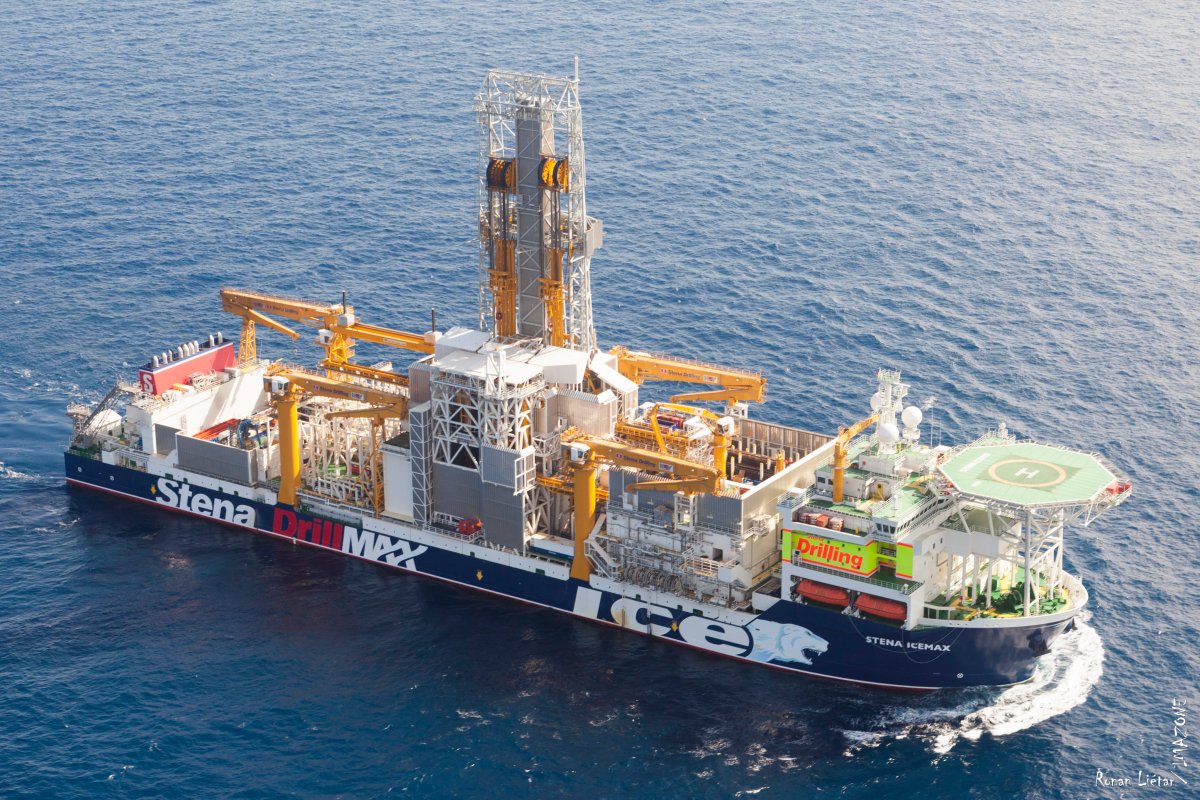Shell Canada has been given the green light to resume drilling off the coast of Nova Scotia, three months after operations stalled when a two-kilometre riser broke off and fell to the ocean floor in March.

The incident happened when the Stena IceMax drillship moved during a storm. At the time, Shell said no drilling fluid or hydrocarbons leaked as the pipe was already drained of fluids and a blowout protector remained in place over the well.
READ MORE: Pipe breaks off, falls to ocean floor as rig moved during storm off Nova Scotia
No one was injured in the incident.
The Canada-Nova Scotia Offshore Petroleum Board (CNSOPB) said Wednesday that Shell can resume drilling operations at the Cheshire L-97 well, which is 225 km offshore, with restrictions.
Until the board has completed further reviews, Shell Canada must disconnect the drillship Stena IceMax from the wellhead when waves reach five metres in height, instead of eight metres.
CNSOPB CEO Stuart Pinks says the board has spent the past few months reviewing the incident thoroughly, including having independent deep-water drilling experts in to give additional oversight.

Get daily National news
“This has been a rigorous and exhaustive review of the incident,” Pinks said in a release.
“We are satisfied that the cause of the incident has been properly determined and that appropriate corrective actions have been taken so that drilling may resume safely. As an additional safeguard, the CNSOPB has introduced a condition further tightening operating limits under which drilling may occur.”
Shell was also required to ensure the following criteria be followed before drilling could resume:
- That all repaired and replacement equipment is certified, installed, commissioned, tested and compliant.
- That procedures and operational criteria are reviewed and amended, where applicable, with specific focus on updated disconnect procedures and the use of weather forecasting.
- That people are trained and fully aware of changes to procedures, their roles and responsibilities, and are specifically aware of weather-related disconnect criteria. In addition, disconnect drills and simulations are conducted to ensure that personnel in positions critical to the disconnect process are fully conversant with revised procedures.
- That a review of the incident investigation findings and learnings related to equipment, work procedures, and personnel competency be conducted to ensure risks are as low as reasonably practicable.
In an emailed statement, Shell Canada says they’re pleased to return to the project, adding that they’ve taken the steps given by CNSOPB to ensure they can resume drilling safely.
Shell also said they’ve done several training exercises since March, including refreshers in emergency response and an exercise for a severe weather disconnect.
The incident and investigation report are still being reviewed by the CNSOPB to be sure no future changes may be required.
— With files from The Canadian Press.









Comments